Living and Learning
This week’s Living and Learning statement is: I recognise the importance of money. We had a session where we talked about shopping and spending money. We discussed free range and value chickens.
We experienced what it was like to be a value chicken by bunching together and not having much space to live in.
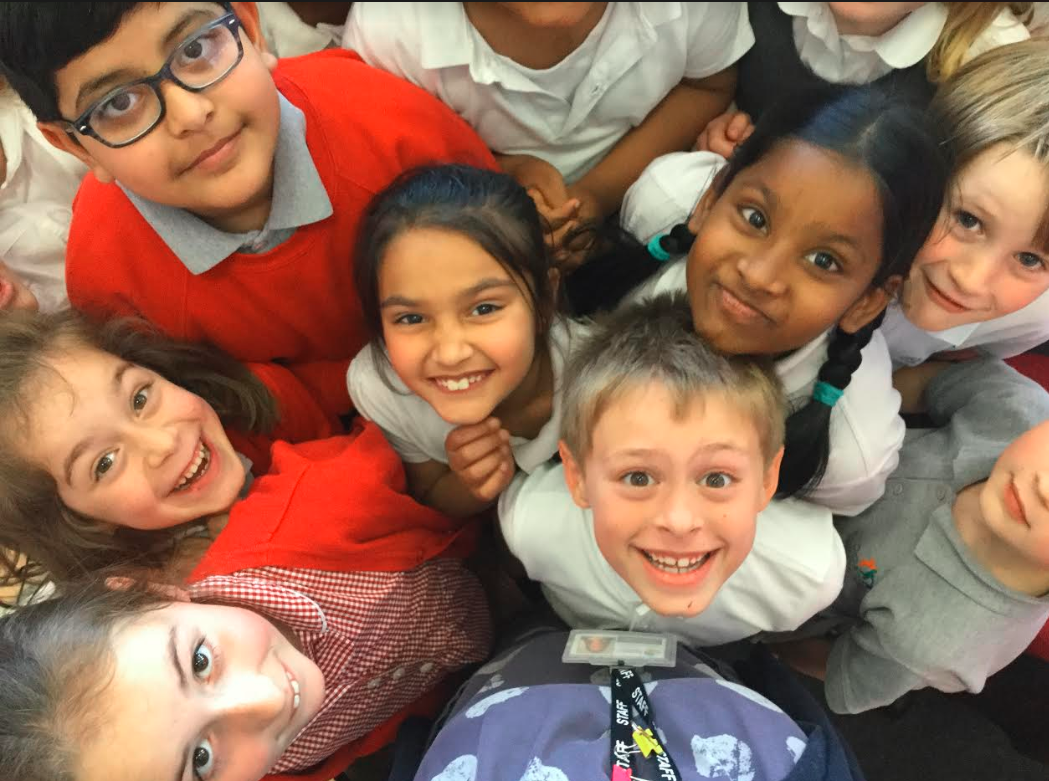
Value chickens live in the dark and are often crowded by many other birds.
We then experienced what it was like to be a free range chicken who would have more space to roam around in and lay their eggs in.

The chickens live outside and has more space.
Even though we want to save money and would be tempted to buy cheaper value eggs we now know slightly more expensive eggs come from farms that have given chickens a nicer life.
We then discussed different supermarkets who sell the same products for a different price and talked about the importance of shopping with different supermarkets to make our money go further, while being aware of the ethical implications with products such as eggs.
Great news for Leeds
This article is great news for the city enabling children to develop healthy lifestyle choices.
Leeds has become the first city in the UK to report a drop in childhood obesity bucking the national trend. The national child measurement programme (NCMP), which requires all children to be weighed at the start and end of primary school saw a decrease in obesity levels in both reception children and children in year 6.

After-school club availability
Our summer term after-school clubs have started this week but it’s not too late to sign up as we do have a few spaces still available.
Monday cricket Years 3-6
Tuesday skipping Years 1-4
Wednesday Gymnastics (Leeds Gymnastics Club) All years
Thursday multi games Years 3-6
Please contact the office to book for these clubs.
Mini Mermaids running club
Mini Mermaids running club are starting a new block of sessions, open to girls, from 7th June. The sessions build up to a 5km challenge at Roundhay parkrun on Saturday 20th July at 9am.
Gledhow
LEEDS LS8 1RG
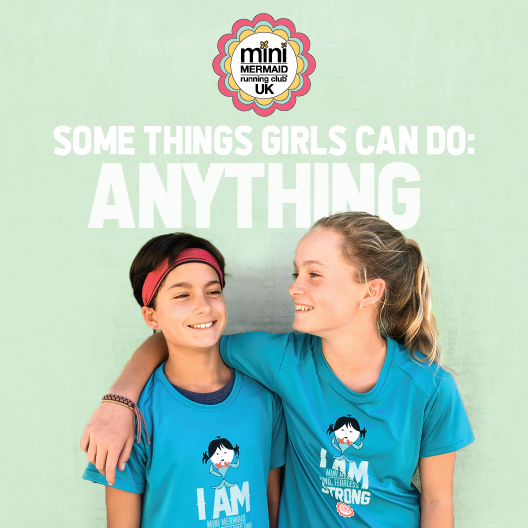
For details of how to sign up, click on the booking page here.
Living and Learning: School charity fundraising
Our Money Matters themed week starts on 20 May.
During the week, there will be two opportunities to raise money for our current school charity, WWF (selected democratically by our school councillors).
Hot Shots Monday 20 May 2019
Every child will get chance to take part in this fun event to ‘kick’ off our Money Matters themed week. Children are encouraged to raise sponsorship money for taking part in the event with the money raised going to our school charity WWF.
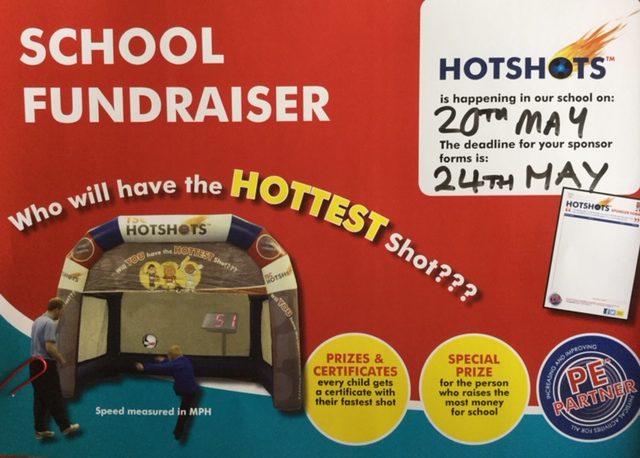
Money trail 24 May 2019
Start saving your 1p and 2p coins to bring into class during the themed week. At the end of the week each class will use their class’s coins to make a whole school money trail in the playground.

Here’s our trail from last time where we raised £117.77. Can we beat this total?

Here’s some ways the money we raise might be used by WWF.
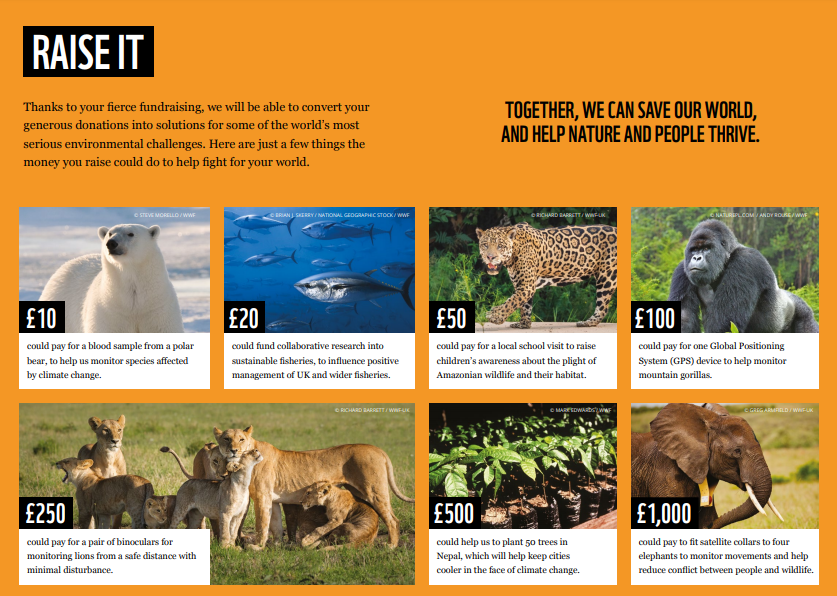
Living and Learning: Relationships education parent/carers information session
We will be holding two parent/carer information sessions on Monday 20 May at 2:30pm and 5:30pm. The sessions, open to parents/carers from all year groups, will give more information about the following.
- What does our Living and learning curriculum cover?
- What does relationships education look like in different year groups through school?
- What is included in our relationships and sex education policy?
If you are interested in attending, please complete and return the response slip on the letter being sent home to reserve a place.
If you are unable to attend but would like information from the session to be sent home with your child, please indicate this on the letter.
Living and Learning
This week’s Living and Learning statement is: I recognise mental health is important. We started the session by discussing what physical and mental health are and how they’re different.
We talked about how our emotions are important and how we can all have an impact on one anothers’ emotions day to day. This includes put downs – unfair criticism or a negative remark about a person (sometimes said as a joke). We then talked how we feel when we receive one.
“I feel sad.” Explained Tanvi.
“Let down,” said Amrit
“Slightly depressed.” Saahir added
We then talked about strategies to deal with a put down such as ‘your hair is too blonde’.
“We could defend ourselves!” Leah explained.
Other options included:
- giving ourselves a ‘put up’
- use humor in the situation
- change the subject
- express your feelings
- ask for help
“I like it this way as this is my natural colour.” Demonstrated Sukhmani.
“You said you liked my hair yesterday. You said it was your favorite colour!” responded Edris.
Can your child think of any situations where it’s easier or more difficult to decide on how to deal with a put down?
We were really impressed with your ability to empathise with each others’ feelings in this session, Year Three. Well done!
After-school clubs summer term
Our summer term after-school clubs are now available to be booked for your child/children. Some of the clubs are open to Reception class.
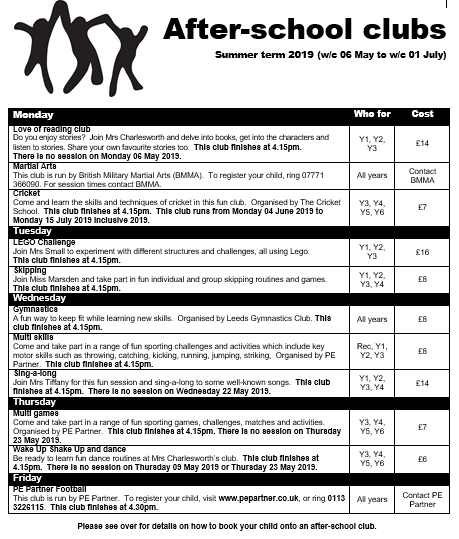
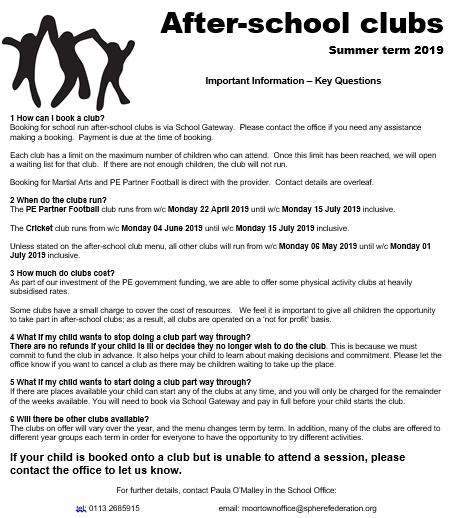
Living and Learning: Money Matters themed week – HotShots charity fundraising event
To launch the themed week, on 20 May, we will be holding a Hotshots fundraising event, led by PE Partner, to raise money for our school charity, WWF.

During the day, each class will be able to take part in the Hotshots event, with each child having three chances to score a goal and their fastest time recorded. All children will receive a certificate with their fastest shot and medals will be awarded for the fastest boy and girl in each class.
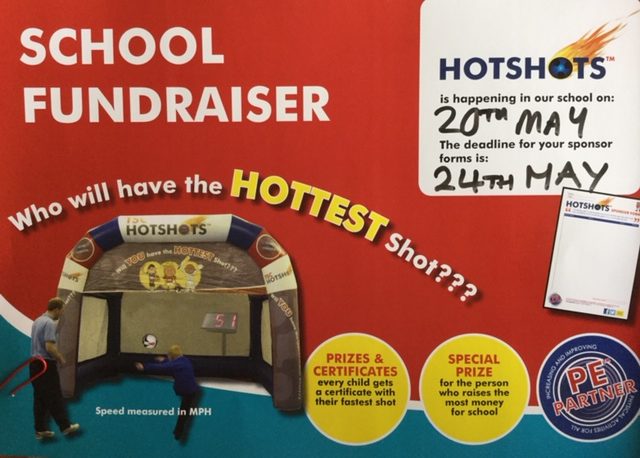
Sponsor forms have been sent home and children are encouraged to raise money for this event. These should be returned, with any money raised, by the end of the themed week (Friday 24th May). Please ask at the office if you need a sponsor form.
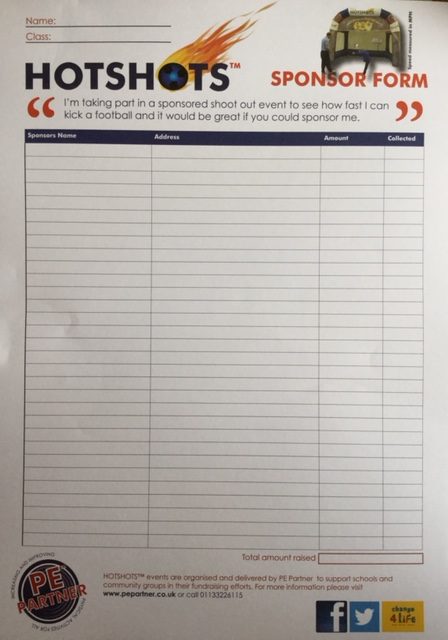
Living and Learning: Money Matters themed week 20 May
Our next whole school themed week Money Matters, based around money and financial education, will be taking place from Monday 20 May 2019. A variety of events and visitors are planned to help us deliver this key aspect of our Living and Learning curriculum.
During the week we will include looking at questions including:
- What is money?
- Where does money come from?
- How do we spend money?
- How do we manage money?
To launch the themed week, on 20 May, we will be holding a Hotshots fundraising event, led by PE Partner, to raise money for our school charity, WWF. During the day, each class will be able to take part in the Hotshots event, with each child having three chances to score a goal and their fastest time recorded. All children will receive a certificate with their fastest shot and medals will be awarded for the fastest boy and girl in each class. Sponsor forms have been sent home and children are encouraged to raise money for this event. These should be returned, with any money raised, by the end of the themed week (Friday 24th May).
Another way we will be raising money for our school charity is by having a penny trail at the end of the week. Children are encouraged to bring in any 1ps and 2ps to their class and a trail will be created using all the money brought in at the end of the week.
Did you know we offer a School Savings Club account, in association with Leeds Credit Union, available to all pupils? Jordan Francis, from Leeds Credit Union, will be available from 3:00pm – 3:45pm on Wednesday 22 May to give more information about the account. This will also be the regular half termly paying in session for pupils who already have an account.
Finally, if your job involves an aspect of finance and/or money and you can support our themed week by coming into school, please pass on your details to the office.